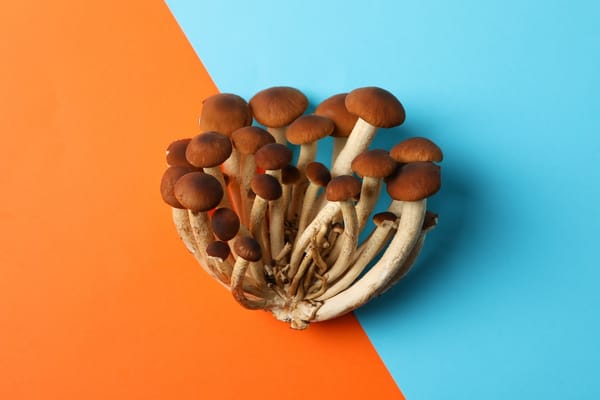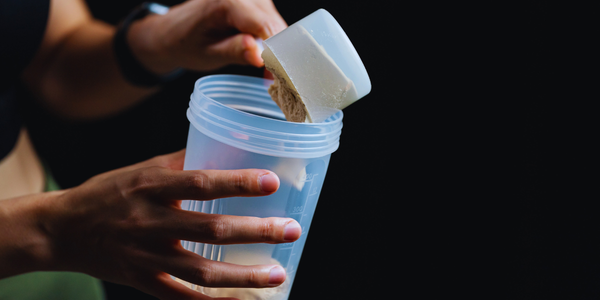BDNF and Stroke Recovery

Stroke is a major cause of long-term disability worldwide. It affects patients' physical, cognitive, and emotional health. But, new research shows how a key protein called brain-derived neurotrophic factor (BDNF) helps the brain recover after a stroke. This article looks into how BDNF can help heal and improve stroke survivors' lives.
Key Takeaways
- BDNF is a critical protein that plays a vital role in the brain's recovery and reorganization after a stroke.
- BDNF promotes neuroplasticity, the brain's ability to adapt and change in response to new experiences and challenges.
- Increased BDNF levels are associated with improved cognitive, physical, and emotional outcomes for stroke survivors.
- Understanding the link between BDNF and stroke recovery can lead to the development of new therapeutic strategies to enhance the brain's natural healing process.
- Incorporating lifestyle factors that boost BDNF, such as exercise, cognitive stimulation, and certain dietary components, may aid in stroke recovery.
What is BDNF and Its Role in Stroke Recovery?
Understanding Brain-Derived Neurotrophic Factor (BDNF)
BDNF is a key protein that helps keep the brain healthy and working right. It's a big part of how the brain changes, grows, and makes new connections. This is important for learning, remembering things, and staying resilient.
BDNF also protects and feeds brain cells, making sure they work well together. It helps create new brain cells and keeps connections strong. Having enough BDNF is linked to better thinking skills, mood, and protection against brain diseases.
But, if BDNF levels drop, it can lead to serious brain and mental health issues. This includes Alzheimer's disease, dementia, depression, and more. Sadly, low BDNF levels are also tied to a higher chance of getting a stroke and not recovering well from one.
| BDNF Functions | BDNF and Neurological Disorders |
|---|---|
|
|
Knowing how BDNF helps the brain adapt and recover after a stroke is key. It helps us find new ways to help people get better after a stroke.
neuroplasticity
The Link Between BDNF and Stroke Outcomes
Many studies show a strong link between brain-derived neurotrophic factor (BDNF) and stroke outcomes. Low BDNF levels soon after a stroke are often linked to poor recovery. On the other hand, higher BDNF levels later on are tied to better recovery.
BDNF is key to the brain's ability to change and adapt after a stroke. It helps the brain make new connections. This is vital for getting better and recovering fully.
BDNF and Stroke Prognosis
Studies show that low BDNF levels early on after a stroke predict worse outcomes. People with low BDNF often have more severe brain damage, worse movement, and don't recover as well as those with higher BDNF levels.
stroke recovery
But, high BDNF levels later on are linked to better recovery. This includes better thinking, movement, and quality of life. So, BDNF is key to the brain's healing and recovery after a stroke.
BDNF and Neuroplasticity: The Brain's Ability to Reorganize
The human brain is amazing, changing and adapting in ways we're still learning about. This ability to change is called neuroplasticity. It helps the brain adjust its connections in response to new information or experiences. This is key in helping people recover from a stroke.
At the center of this change is a protein called brain-derived neurotrophic factor (BDNF). BDNF helps strengthen and manage connections between brain cells. It's essential for making new neurons and keeping existing ones healthy and working well.
BDNF is a big part of how the brain changes and recovers after a stroke. By using techniques like intense practice, we can use BDNF to help the brain heal. This is a big part of how we help people recover from strokes.
Studying BDNF and how it affects the brain's ability to change is crucial for stroke recovery. By understanding this, doctors can make better plans to help people get better.
"The brain's ability to change and adapt in response to experience is known as neuroplasticity, and it is a fundamental aspect of brain function throughout life."
https://www.youtube.com/watch?v=-B8cWZZDudI
Neuroplasticity is a complex process that involves many changes in the brain. BDNF is a key player in this process. It helps the brain adapt and change. By focusing on BDNF, researchers and doctors can find new ways to help people recover from strokes.
BDNF stroke recovery
Strategies to Increase BDNF Levels for Stroke Recovery
Stroke survivors can boost their brain's healing by taking proactive steps. Regular exercise, like aerobic workouts with high-intensity intervals, can increase BDNF levels. This helps the brain recover and adapt better.
Good sleep habits, eating foods that boost BDNF like coffee and fish, and managing stress with meditation can also help. Connecting with others has been shown to raise BDNF levels and improve recovery outcomes.
By adding these strategies to their daily routine, stroke patients can tap into their brain's healing power. Increasing BDNF levels, doing BDNF-boosting activities, and understanding the link between BDNF and stroke recovery can greatly aid in rehabilitation.
| BDNF-Boosting Strategies | Benefits |
|---|---|
| Regular Aerobic Exercise | Significantly increases BDNF production, enhancing neuroplasticity |
| Consuming BDNF-Rich Foods | Coffee, olive oil, and fish can naturally boost BDNF levels |
| Stress Management Techniques | Meditation and other practices help reduce stress and elevate BDNF |
| Social Engagement | Connecting with others is linked to higher BDNF and better recovery outcomes |
"By incorporating BDNF-enhancing strategies into their daily lives, stroke patients can harness the brain's natural healing potential and improve their chances of a successful recovery."
Emerging Therapies and Future Directions
Researchers are finding new ways to use BDNF, or brain-derived neurotrophic factor, for stroke recovery and brain healing. They are looking at methods to boost BDNF in the brain. This includes using hydrogels to deliver BDNF and creating new BDNF boosters.
Along with these BDNF therapies, scientists are also studying ways to increase the brain's own BDNF. This includes using transcranial magnetic stimulation and specific medicines. These methods help the brain make and use BDNF better, which is key for brain healing and flexibility.
As we learn more about BDNF and stroke recovery, new treatments show great promise. They could help stroke patients recover better and improve their long-term health. By using BDNF, we might find new ways to help people recover from strokes and more.
"The ability to harness the power of BDNF could revolutionize the way we approach stroke recovery and brain health."
The future is looking good for stroke survivors and those wanting to keep their brains healthy and able to heal. Researchers and doctors are exploring new possibilities with BDNF treatments. This could change lives by offering better ways to recover from strokes.
Conclusion
BDNF is a key protein that helps the brain recover and change after a stroke. It's linked closely with how the brain changes and heals. This knowledge helps doctors and researchers find better ways to help the brain heal.
Stroke survivors can also help their recovery by making healthy choices. These include exercising, getting enough sleep, and staying connected with others. Lifestyle changes like these boost BDNF levels, which is good for recovery.
BDNF is very important for getting better after a stroke. It lets the brain change, adapt, and heal. With BDNF, doctors and patients can work together to make the most of the brain's healing abilities.
This leads to a better quality of life and a more positive outlook for the future. As research goes on, we'll likely see even more ways to help the brain heal. By staying informed and taking action, stroke survivors and their families can help shape their recovery. This leads to a healthier, happier life after a stroke.
FAQ
What is BDNF and what is its role in stroke recovery?
BDNF stands for brain-derived neurotrophic factor. It's a key protein that helps the brain recover and adapt after a stroke. BDNF protects and feeds neurons, helps them connect, and creates new ones. This is crucial for the brain to change and recover after a stroke.
How are BDNF levels linked to stroke outcomes?
Studies show that BDNF levels affect how well someone recovers from a stroke. Low BDNF levels early on can mean a tough recovery. But, higher levels later on can mean better recovery. This shows how important BDNF is for the brain's recovery and flexibility after a stroke.
What is the role of BDNF in neuroplasticity and brain reorganization after a stroke?
BDNF is key to neuroplasticity, the brain's ability to change and adapt. It helps neurons connect better and creates new ones. This lets the brain rewire and recover lost functions after a stroke.
What strategies can stroke survivors use to increase their BDNF levels and support brain healing and recovery?
Stroke survivors can boost their BDNF by exercising regularly, sleeping well, eating foods like coffee and fish, practicing stress-reducing activities, and staying connected with others. These actions help support brain healing and recovery.
What are some emerging therapies and future directions in leveraging the power of BDNF for stroke recovery?
Researchers are looking into new ways to use BDNF for stroke recovery. They're exploring treatments like BDNF in hydrogels or special BDNF boosters. They're also studying therapies that increase BDNF naturally, like brain stimulation or certain medicines.
ActiveMan — Make Your Move
The Modern Guide to Men’s Health, Fitness & Lifestyle.





